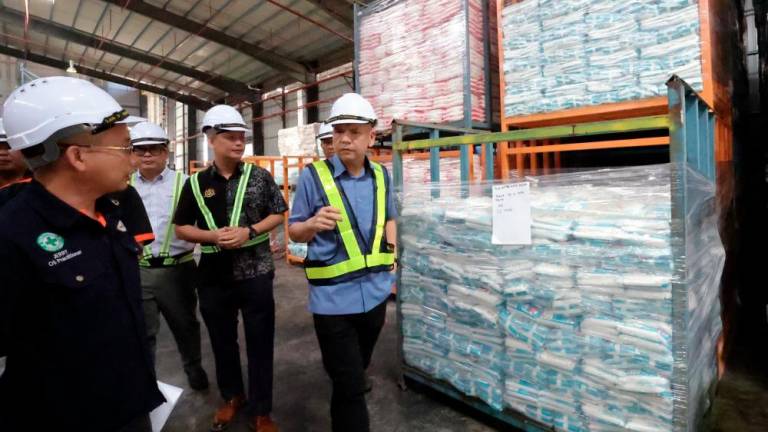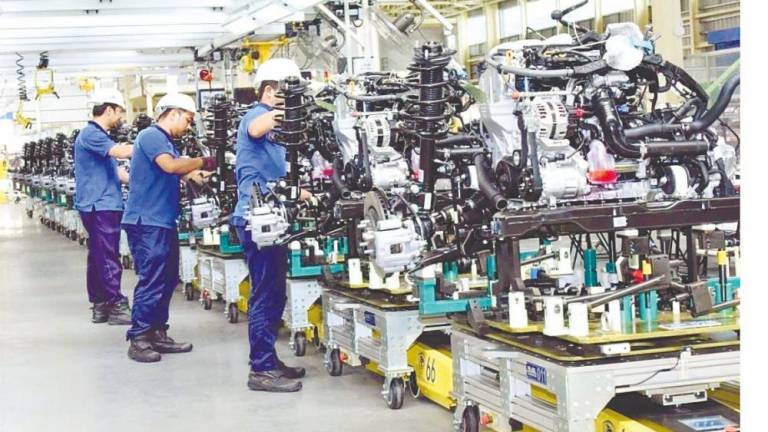A MONTH into the movement control order (MCO) to curb the spread of the Covid-19 virus, Malaysians have become aghast at the way consumer goods have become more expensive, even unaffordable in some cases.
Prices of basic items like vegetables, sugar, rice, grains, milk and oil have shown no sign of coming down despite the burden the public has to bear with increasing unemployment amid a tightening economy.
The Ministry of Domestic Trade and Consumer Affairs did announce on April 18 that a price control mechanism could be implemented at any time during the MCO if there was indiscriminate increase in prices of goods.
However, public information on action taken has been wanting.
Consumers are generally clueless about the existence of any price control list that specifies ceilings on the prices of goods during the MCO period and even after.
The list is needed to also earmark essential items to ensure sufficient supply and prevent hoarding.
The situation has spurred civil society groups to take upon themselves the task of checking prices in the market.
Two such groups, the Penang Hindu Association (PHA) and Penang Tanjung Muslim Association, have called on the government to monitor, audit and take appropriate action, especially by invoking the Price Control and Anti-Profiteering Act 2011.
They particularly expressed concern about the plight of the low-income B40 group, who they said are struggling to survive after being hard hit by soaring prices.
Indeed, the B40 consumers mostly do not know if retail price hikes for the essentials that they need are justified. Common people need to be made aware.
PHA president and social activist
P. Murugiah is puzzled that traders have been allowed to raise prices at all.
With most restaurants and hotels closed for business there should be an oversupply of foodstuff in the market. Despite this, the PHA has found that retail prices for many items have not been brought down.
Murugiah says some traders who had experienced a regular profit margin of 15-20% during pre-Covid times may now enjoy a margin of 100% or more.
The Ministry of Domestic Trade and Consumer Affairs should step in by announcing a price control list through the media, and by visibly highlighting it on public banners and signboards.
Overpricing is not the only problem. PHA has detected many items sold on shelves without price tags as required by law.
Some retailers are also engaging in deception by selling loose and pre-packed items like flour in amounts that are below their specified weights to oblivious buyers.
“Importers, traders and retailers are taking advantage,” Murugiah said. “There is not enough enforcement and the public is being cheated.”
A major stumbling block has been the role of unscrupulous middlemen.
According to activist N. V. Subbarow, such middlemen are dictating prices of vegetables grown and distributed from Cameron Highlands.
This is why the prices of fruits and vegetables from the highlands have been found to be significantly higher than those grown in the lowlands, said the Consumers Association of Penang education officer.
He suggests that the government encourage farmers to sell directly to consumers, and that pasar tani markets run by farmers be allowed so as to get around middlemen intent on profiteering.
The real burden on the people, however, is yet to come with prices expected to spiral upwards even after the MCO is over. There is a serious concern that traders will resort to various excuses to not bring prices down, such as in claiming to have lost income due to the crisis.
Also, foodstuff imported from other countries can be expected to become more expensive. This will then be the time to directly support our local farmers.
Without stern and effective government intervention, people will be left to their own devices to adapt.
Subbarow wants consumers to teach errant suppliers a lesson by boycotting goods that are unduly priced high.
“Consumers must change their habits and, for example, opt for cheaper vegetables with better nutrition,” he said. “If the prices of Australian potatoes, carrots, broccoli and tomatoes are too high, we should go for local potatoes and fruits.”
Himanshu is a veteran journalist and theatre practitioner. Comments: letters@thesundaily.com













